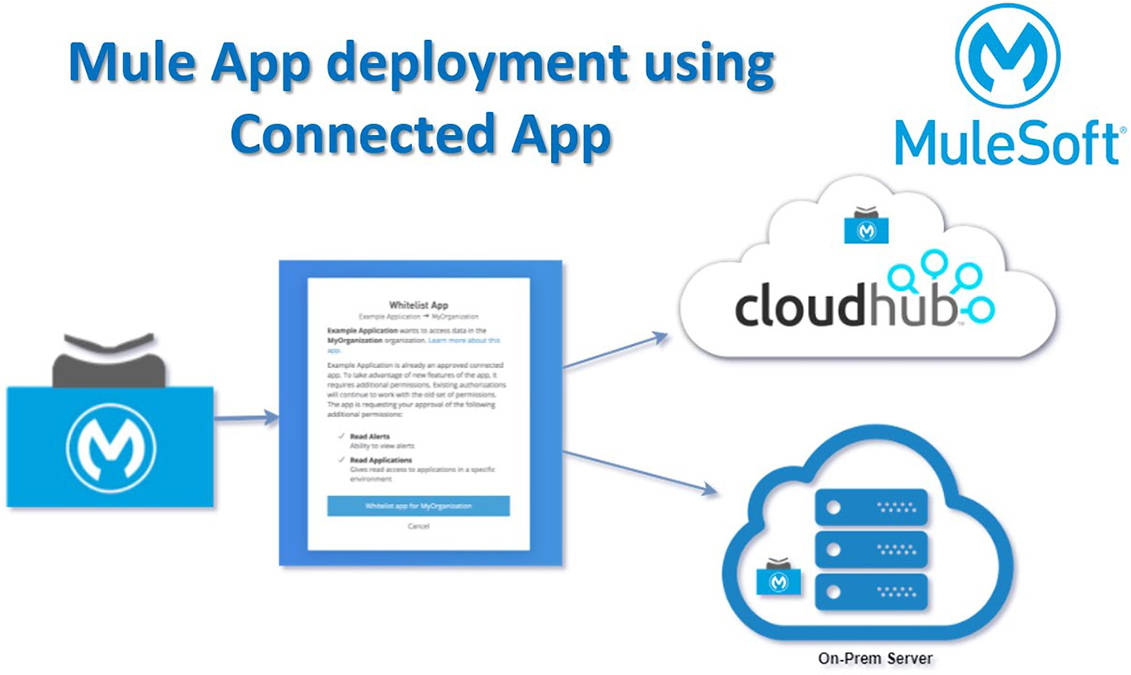Mule is an Enterprise Service Bus (ESB). It consists of ‘flows’ which act as middle layer by routing and transforming data between different systems with high availability and reliability.
What is ESB?
ESB (Enterprise Service Bus) is a tool which is used to distribute work among different connected components. It is a light-weight Java based ESB and integration platform used to exchange data by connecting applications together quickly and easily. It allows easy integration of any existing systems irrespective of the technologies using Java Messaging Service (JMS), Java Database Connectivity (JDBC), and HTTP etc. ESB has universal connectivity to integrate events in real time or batch process scenarios.
The main benefit of an ESB is that it allows different applications to communicate with each other.
Mule’s capabilities include;
Service creation and hosting — expose and host reusable services, using the ESB as a lightweight service container
Service mediation — shield services from message formats and protocols, separate business logic from messaging, and enable location-independent service calls
Message routing — route, filter, aggregate, and re-sequence messages based on content and rules
Data transformation — exchange data across varying formats and transport protocols
Why we use ESB?
ESB is a middleware technology used to integrate different types of systems. Each and every application is independent and still able to transfer and receive data from other systems, thus preventing scalability issues and making sure that the transferring and receiving is done through it only.
What is the use of MuleSoft?
Mule is the runtime environment of Anypoint Platform. It is a lightweight Java-based enterprise service bus and Integration platform that allows developers to connect different applications together quickly and easily thus enabling them to exchange data safely.
Applications are connected through mule platform using Restful API’s, transformation of data is done using Data Weave and sending the input through RAML (Restful API Modeling Language), JSON (JavaScript Object Notation) formats.
MuleSoft Anypoint Platform
Anypoint platform is one of the cross-integration platform that allows users to build application network of apps, data, devices using flows, APIs and integrations easily.
MuleSoft Anypoint Design center
Anypoint Design center is a development environment for mule applications and API definitions in cloud. Here we can design the flow of our application through connectors in mule palette.
Mule palette
Mule palette manages the modules, connectors of any given project, along with adding new connectors from exchange. The Mule palette lists the available event processors such as scopes, filters, and flow control routers, along with modules and their related operations.
MuleSoft Anypoint Exchange
Anypoint Exchange provides the assets and resources through which we can download and integrate into our application flow based upon the requirement. By using Anypoint exchange we can create API developer portal, view and test API’s. We can create assets and use API notebooks to test API functions.
MuleSoft Anypoint Management center
Anypoint Management center is a web interface which manages entire Anypoint platform, both on-premise and in the cloud. Management center includes following:
- Access Management
- API Manager
- Runtime Manager
- Data Gateway
Access Management — Access Management controls and monitors the usage of Anypoint platform in an organization through user management, audit logs, enforcing roles, business groups and environments.
API Manager — API Manager manages client applications, custom policies, monitor status of application, set API alerts and defines SLA’s (Service Level Access).
Runtime Manager — Runtime Manager provides us two types of environments i.e., Design and Sandbox which allows us to manage, deploy, monitor applications deployed in the cloud or on-premises.
Data Gateway — Data Gateway provides the connections through which we can connect to different databases like SAP, Oracle, SIEBEL, SQL Server, IBM DB2, MySQL etc. Data Gateway also provides Cloud Extender which allows us to communicate between Data Gateway and data source on private networks. Through Data Gateway we can also connect to Salesforce and access the data.
Connectors in MuleSofts Anypoint
MuleSoft provides the different type of connectors to integrate with different platforms. Using Anypoint connectors we can easily integrate applications with third party API’s and standard integration protocols. Use connectors that exist within an application’s flow to send and receive data using protocol or a particular API. Anypoint connectors are automatically bundled with Anypoint studio.
Also based upon the requirements users can import additional connectors into a studio instance, or create applications using connectors outside of studio by adding them as maven dependencies or including connector libraries with the project.




